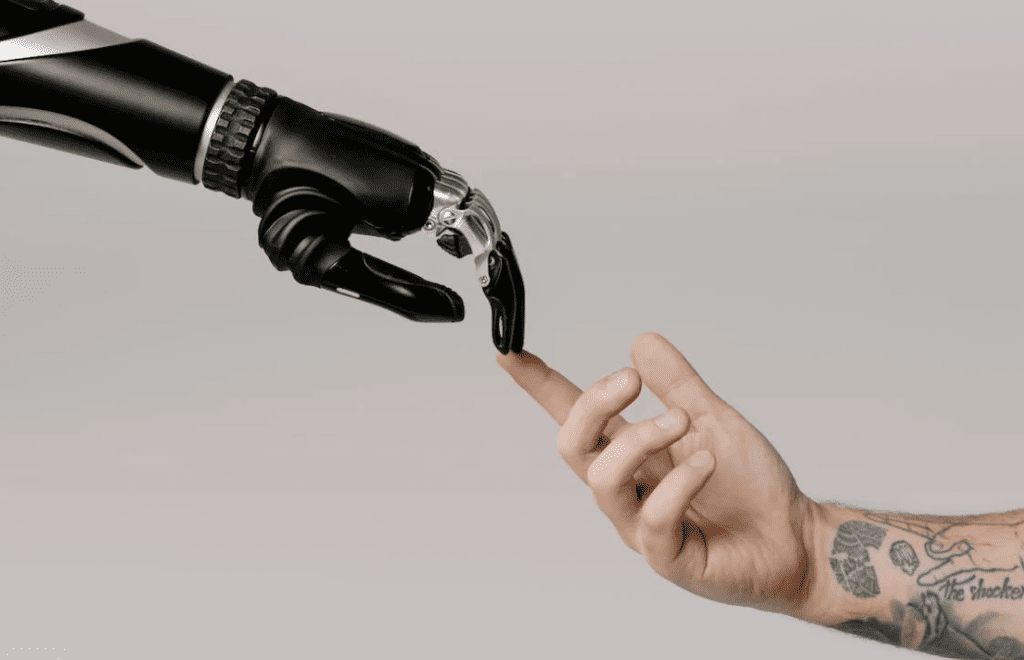The rise of AI has changed the way marketing works. One could say that has helped in making marketing quicker and more efficient. The use of AI has helped marketers use automation tools, targeting the audience they want in a more personalized way.
According to Forbes, Marketing is the sector where AI will have the most financial impact.
This shift has changed the industry and the requirements for new graduates wanting to join this industry. Apart from that, even established marketers with years of experience have to keep up with the trends and learn to use this innovative technology to their advantage.
This blog post is a collaboration between Advance Career and Growth-nomics. As a recruitment agency and a growth marketing agency respectively, we would like to discuss the transformation of marketing and the impact it has had on the talent pool
.
The rise of AI in marketing
In 2024, marketing can collect more information than ever before from businesses and consumers. The majority of these changes are because of AI, which can process data in the blink of an eye.
The application of AI in marketing comes in many forms, such as automation, data analysis and data collection. Here are some of the most popular implementations:
Big Data & Personalized Experiences
Big data technologies have now made it possible to collect demographic information and consumer preferences. AI is crucial for processing and analyzing this vast amount of data to extract meaningful insights, identify patterns, and make data-driven decisions.
The primary goal of AI in Big Data is to automatically process data, making analysis faster, more accurate, and scalable.
Apart from that AI can make predictions based on data. The process is called predictive analytics, it determines the possibility of future outcomes based on previous information. It uses the technology of data mining and probability techniques to estimate more specific outcomes that can help in decision-making and budget allocation.
Consumers desire and enjoy their own personalized experience more than just seeing general information that is not relevant to them. Marketers are using AI to analyze customer behavior, preferences, and demographics to create personalized content, recommendations, and offers.
Operational Efficiency in Marketing
Another shift in the marketing landscape caused by the rise of AI is the focus on operational efficiency. Marketers now can focus on their strategy and not worry about other processes that can be automated such as email campaigns, and social media management.
This is a huge advantage for marketers that have only in the last couple of years the ability to use automation and avoid completing these repetitive tasks manually. Operational efficiency is not only achieved through saving time but also by the lack of human mistakes that can happen.
Natural Language Processing (NLP) for Marketing
A component of artificial intelligence is Natural language processing (NLP) which has existed for the last 50 years. NLP allows AI systems to understand and interpret human language and NLP has roots in the linguistic field.
Marketers use this technology for sentiment analysis, search engines, social media monitoring, and chatbot interactions to gain a better understanding of customer opinions and reactions.
AI Chatbots & Virtual Assistants
In 2023, we experienced the rise of AI chatbots and virtual assistants. Both of these are similar and have the goal of freeing your time and helping you escape routine. Their main difference is their purpose and their design.
A chatbot is a digital assistant used mainly for conversions, its main purpose is to help clients find the information they want, assisting them in their native language 24/7.
Whereas a virtual assistant’s main purpose is to help marketers with various administrative tasks like scheduling appointments and answering emails.
Both of these help marketers – and employees of other sectors – to perform their tasks with fewer distractions.
Moreover, AI can help in tasks marketers dedicated hours to complete until 2022. Programs like ChatGPT can help with content generation and research.
Of course, with this function, many questions arise about the originality of the content and whether it is ethical to use these tools for content production.
Other functions like Targeted Marketing and ROI Measurement can help marketers with segmentation and how they can provide better results.
How AI Reshapes the Talent Pool and Industry
Requirements
The integration of AI in marketing has significantly reshaped the talent pool and industry requirements, leading to a demand for professionals with new skill sets and expertise.
Here are some skills companies are currently looking for in marketing positions:
Data science and analytics skills:
Marketers always had the responsibility of tracking their campaigns, but now companies are searching for candidates who can master data analytics and be able to form predictive analytics based on the collected data.
Programming and AI development:
Marketers have to work with AI, and now any programming language such as Python and R can seem as an advantage for any candidate. Also, the ability to develop and implement AI algorithms is a sought-after skill.
Using AI technologies:
Candidates that have used AI technology in the past have a strong advantage, as it’s important for companies to know the candidate’s capabilities. Annie Papadopoulou, CEO – Advanced Careers, encourages candidates to include all the software they have used in the past on their CVs:
“AI is reshaping the talent pool and industry requirements by creating a demand for professionals with expertise in data science, machine learning, and AI ethics.”

Automation tools expertise:
The knowledge of automation is currently crucial as it is used in every aspect of marketing. From email marketing to social media management, this is the reason companies value candidates who have the skills to understand how automation works.
However, it is important to mention that companies may highly value the previously mentioned skills but they are looking for people who understand the essence of marketing.
The goal is not for AI technology to replace marketers but for these tools to help them be more effective and productive. In this way, even people who do not fill these newfound requirements have the opportunity to join the industry if they can grasp the essence of marketing and have the energy to learn and adapt to the implementation of AI and automation tools.
Final thoughts
AI technology and automation tools have helped the marketing sector be effective and efficient.
After discussing some of these changes, the aftermath of this shift and reshaping of the sector has affected the industry standards and what employers are looking for in potential employees.









